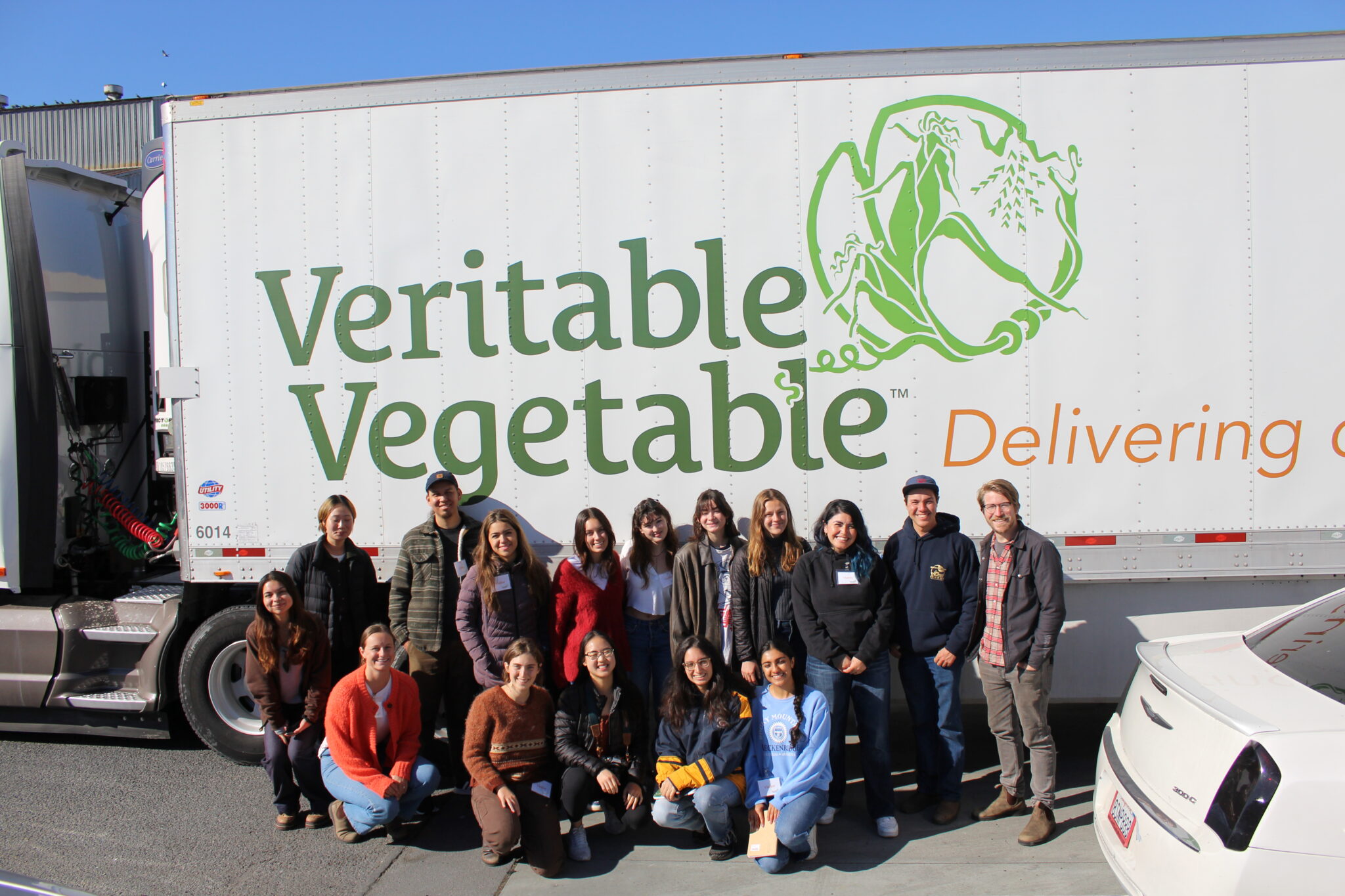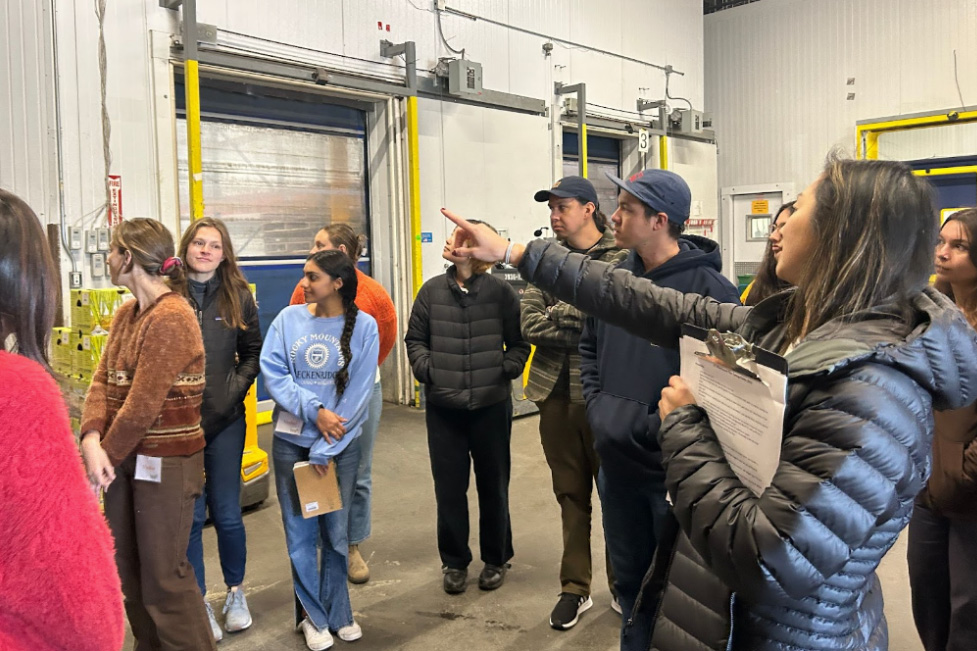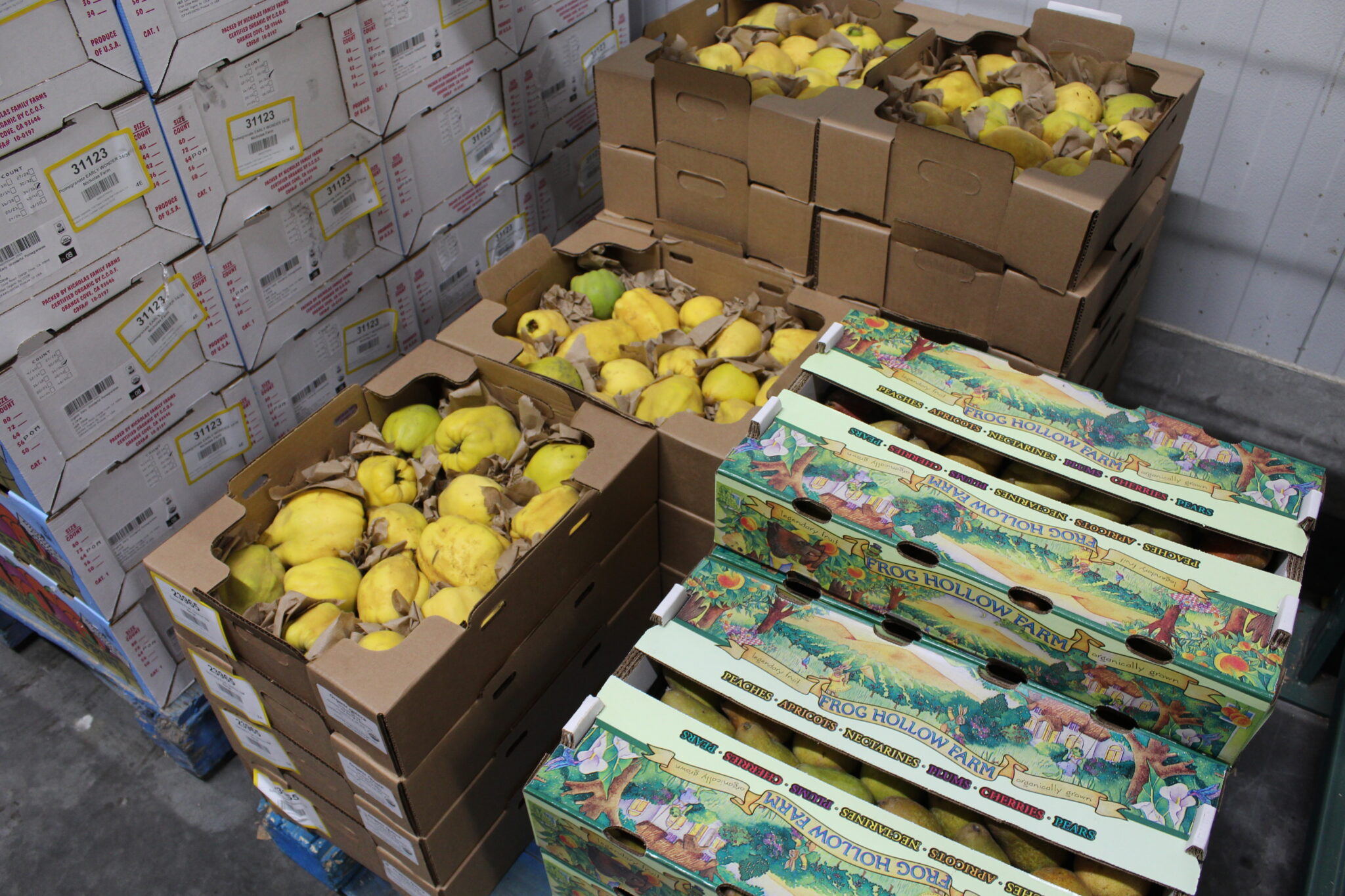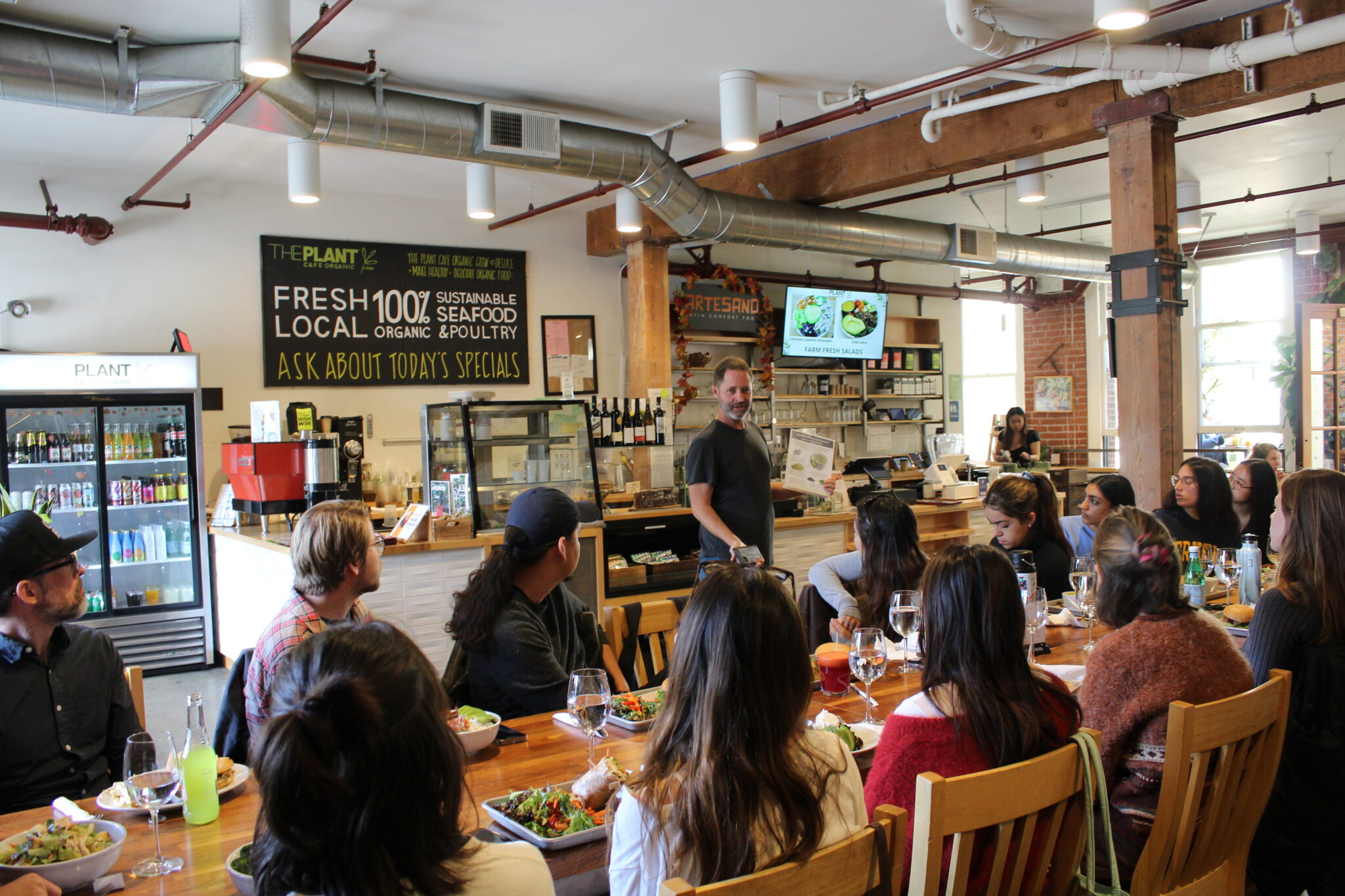From the Field
Veritable Vegetable Offers a Glimpse at the Values-Based Supply Chain
Since 1974, the wholesale distributor Veritable Vegetable has served a crucial role in the organic food supply chain. We took a group of students to tour the warehouse.

On October 27, 2023 a group of students and BFI staff visited Veritable Vegetable, a wholesale organic distributor in San Francisco, to learn more about supply chains. The trip is part of BFI’s ongoing careers program, with the goal of inspiring students to envision careers in food systems.
Upon starting the tour we were greeted by Jennifer Doan, Veritable Vegetable’s director of marketing communications. We spent the morning touring the facility seeing how produce is gathered from farms, stored, and then distributed back out to restaurants and grocery stores across the western US. We quickly learned that sustainability is one of their core values, and it was evident throughout the warehouse. To reduce waste they use reusable pallets and wraps. Their transportation fleet is largely electric, which is important when they are running long routes as far as New Mexico.
After the warehouse tour we were joined by Karen Salinger, one of Veritable’s founders, and a few members of the purchasing team. Salinger proudly shared Veritable Vegetable’s history as a women owned business that was founded in 1974, making it a legacy business of San Francisco. Veritable Vegetable was founded in order to fill the need for low cost, nutritious foods in neighborhood grocery stores and co-ops in the city and were driven by the principle “Food for People, Not for Profit.” Its operation quickly grew to meet the needs of both organic farmers, who needed access to markets, and the businesses who needed quality, sustainably sourced produce. Doing business in San Francisco isn’t without its challenges, but the team is proud of the company’s legacy status.

Jennifer Doan, Veritable Vegetable’s director of marketing communications, gives BFI a tour of the warehouse.

Produce from organic growers across California comes through Veritable Vegetable to be shipped throughout California and the Southwest.
Veritable Vegetable plays a crucial role in organic food systems. The distributor works with over a hundred farms to source hundreds of organic fruits, vegetables, and other products. The purchasing team works closely with farmers to ensure they are getting a fair price for their products. There’s a certain level of trust that needs to occur between a farm and their distributor. The purchasing team explained how it’s all about relationship building. For some farms, Veritable Vegetable is the only distributor with whom they work — and the team at Veritable Vegetable doesn’t take that responsibility lightly. Veritable Vegetable also plays a significant role in making organic food widely available. It supplies local grocery stores and makes organic products available outside of their growing region.
The warehouse tour gave me a greater appreciation and understanding for the logistics behind the supply chain. When a truck from Veritable Vegetable’s fleet picks up product from a farmer and transports it to the warehouse, that truck is now responsible for carrying the result of months of hard work. There is then a whole team making sure that product gets to our shelves and plates. Seeing what goes on “behind the scenes” gave me a new appreciation for all the journey my food takes before it reaches me.
To wrap up our day, we headed over to the Plant Cafe, an organic restaurant and customer of Veritable Vegetable, located just blocks from the distribution warehouse. Over delicious food, we had a discussion with the restaurant owner Matthew Guelke. He explained how the cafe struggled through COVID, closing many of their locations. Nevertheless, Guelke and his staff stayed true to their values and continued serving high quality organic meals — thanks, in large part, to their suppliers. Veritable Vegetable is a truly essential business that runs 365 days a year and never closed during COVID, ensuring that restaurants like the Plant Cafe and grocery stores stayed stocked.

The Plant Cafe’s owner Matthew Guelke meets with UC Berkeley students over an all-organic lunch.
Lunch also provided students an opportunity to reflect on what we learned throughout the day. Many students commented on how inspiring it is that a business like Veritable Vegetable can stick to its principles — values over profit — and continue to thrive for decades. At the end of the day students walked away with a better understanding of what it means to build a values-based supply chain. They gained insights on what a wholesale distributor does and the factors involved in price setting and ethical purchasing, which helps us imagine and work towards a more equitable food system. “My biggest takeaway was that it is possible to run a business according to values. It gave me hope to see that they really do try to stick to their values,” one student attendee said.
Every item on the grocery store shelf has a story to tell. When you take the time to learn where your food comes from it demystifies the food system. One of my biggest takeaways from the tour at Veritable Vegetable is the reminder to be mindful where my food comes from, and appreciate the people involved to get food from the farm to my plate.
This tour was made possible through the Transition to Organic Partnership Program at the US Department of Agriculture. Through our partners California Certified Organic Farmers (CCOF), BFI was granted funds to focus on Workforce Development programming over the next five years. Our Workforce Development programming is particularly focused on highlighting jobs in values-based supply chains and technical assistance for small businesses and farmers in the organic sector.